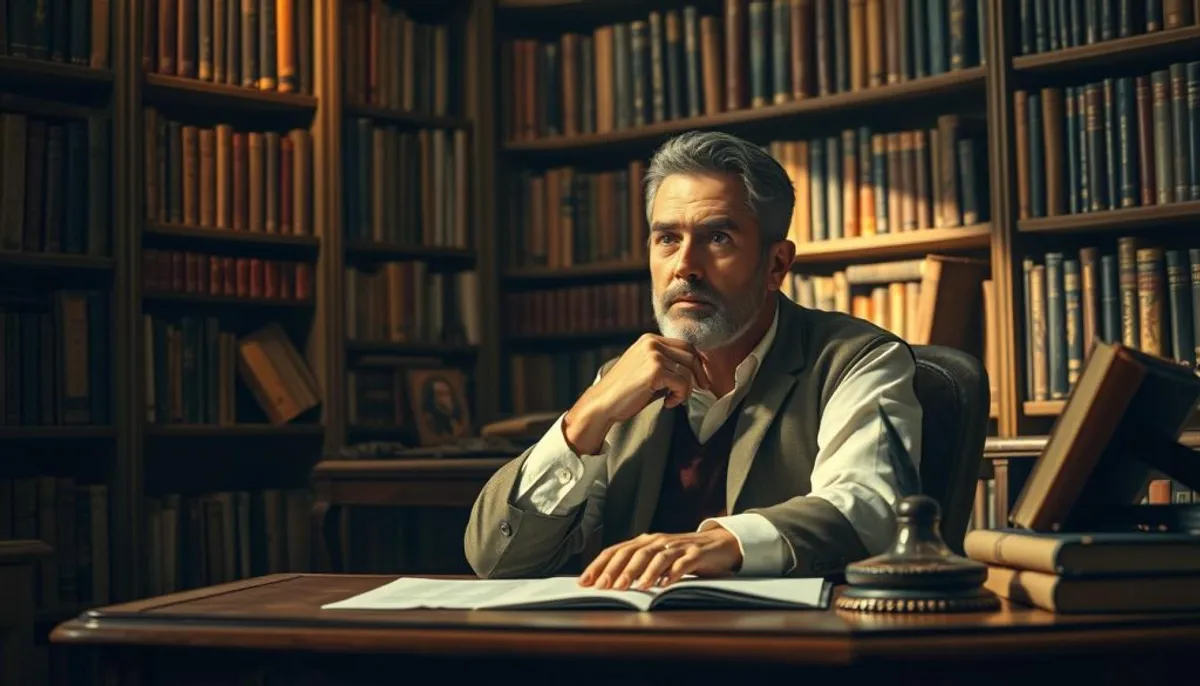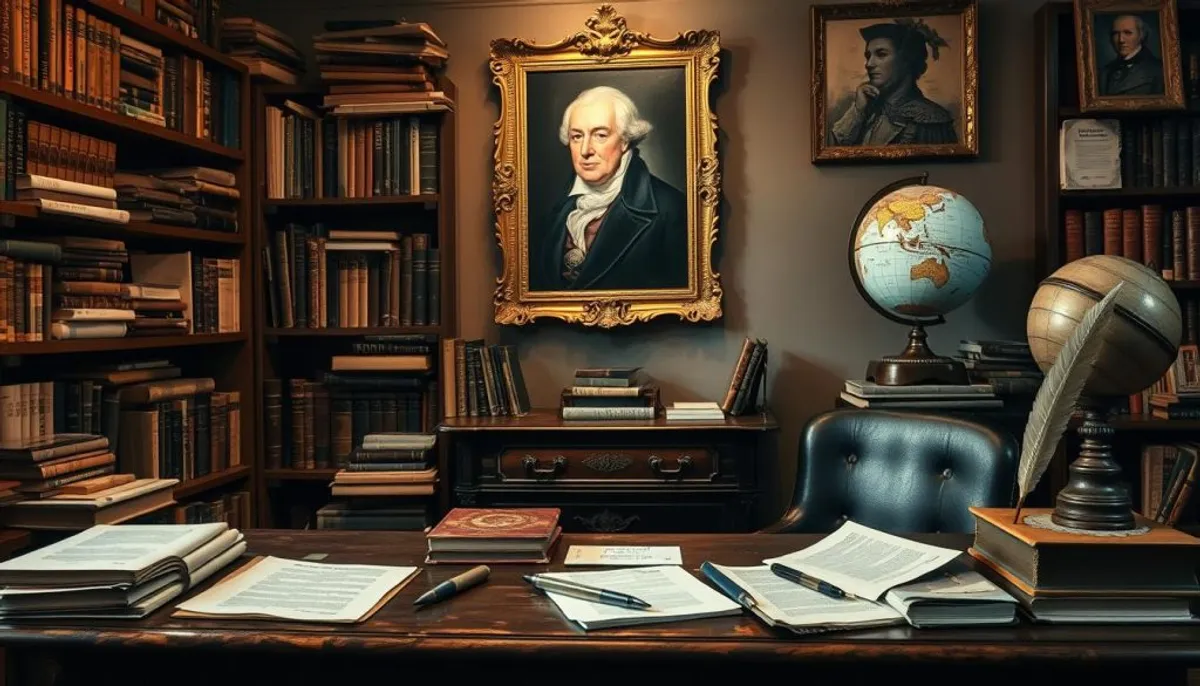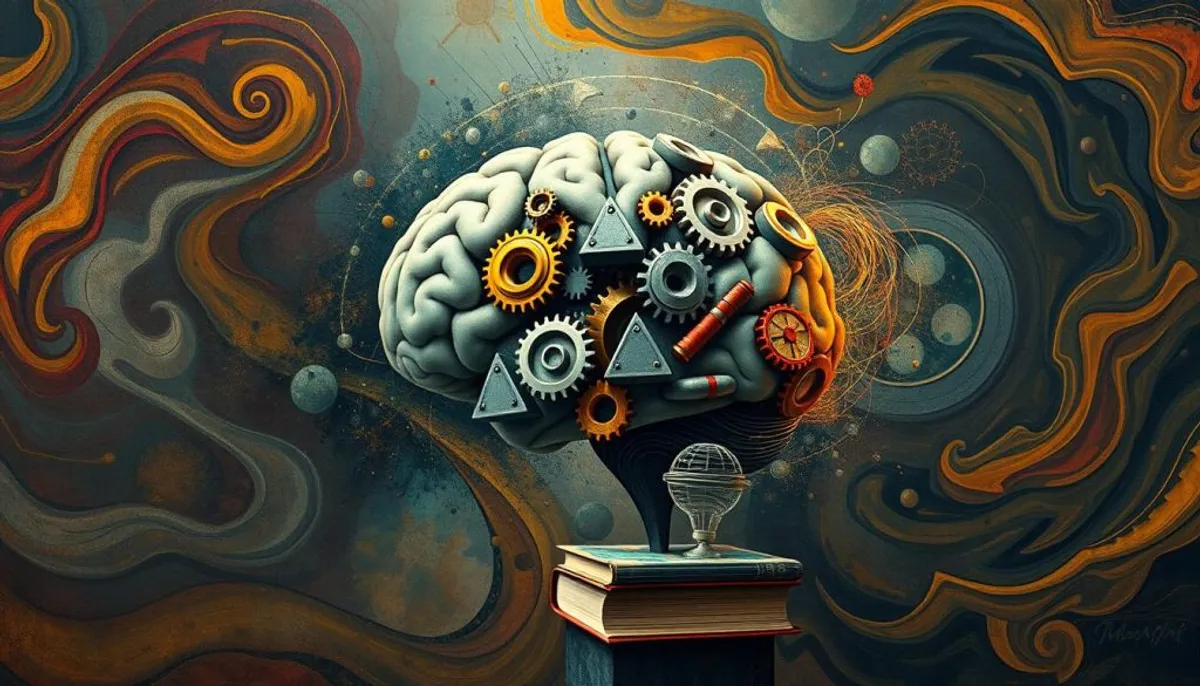Jean Rostand, a major figure in French thought of the 20th century, left a deep imprint. Born in 1894 in Paris, he sparked interest through his multiple facets. A writer, biologist, and academician, his career was rich and diverse.

Culture, according to Rostand, is not limited to a simple accumulation of knowledge. It relies on judgment, logic, and critical thinking. This perspective, still relevant today, urges us to reconsider our approach to knowledge and learning.
Current challenges, such as the Covid-19 crisis and the impact of media, find answers in Rostand's thought. He encourages us to cultivate our intellectual autonomy and our ability to adapt, essential in a constantly changing world.
Who was Jean Rostand: biographer and French thinker
Born on October 30, 1894, in Paris, Jean Rostand profoundly influenced French thought of the 20th century. A biologist and writer, he dedicated his life to the study of sciences. He also reflected on their ethical implications.
His journey as a writer and biologist
After the death of his father in 1922, Rostand settled in Ville-d'Avray. There he created his biology laboratory. His research focused on amphibians, parthenogenesis, and heredity.
In 1928, he published “The Chromosomes, artisans of heredity and sex” with Hachette. This work marked the beginning of his career as a scientific author.

His influence on 20th-century French thought
Rostand's influence on French thought is considerable. Elected to the French Academy in 1959, he received the Kalinga Prize for scientific popularization the same year. His works, such as “Thoughts of a Biologist” (1939), reflect his commitment to the dissemination of scientific knowledge and ethical reflection.
His main works and contributions
Rostand wrote numerous works, blending biology, ethics, and philosophy of science. He participated in the creation of the biology section of the Palais de la Découverte in 1936. In 1962, he contributed to the founding of the “Jean Rostand” research center in Pouydesseaux.
His commitment also extends to the feminist cause and pacifism. This illustrates his humanistic and holistic vision of science.
How does Jean Rostand define culture
Jean Rostand's vision of culture distinctly differs from traditional perspectives. He believes that culture is not merely an accumulation of knowledge, but it should also enrich knowledge. This perspective is radically different from conventional ideas.
The rejection of passive accumulation of knowledge
Rostand rejects the idea that culture is merely a collection of dates, names, or numbers. He believes that this passive approach does not account for the deep essence of culture. For him, culture is a dynamic process, involving critical reflection and a profound intellectual engagement.
The importance of judgment and logic
In Rostand's view, judgment and logic play a crucial role. Culture manifests through the ability to analyze, evaluate, and reason. This approach values the quality of thought over the quantity of memorized information.
Culture as a tool for critical reflection
Rostand sees culture as a tool for critical reflection. It encourages the mind to question, doubt, and seek evidence. This vision of culture fosters a deeper and more nuanced understanding of the world around us.
| Aspect | Traditional Vision | Rostand's Vision |
|---|---|---|
| Definition | Accumulation of knowledge | Quality of judgment and logic |
| Approach | Passive | Active and critical |
| Objective | Memorization | Reflection and analysis |
The foundations of cultural thought according to Rostand
Jean Rostand, a thinker of great acuity, established the foundations of culture. He conceived a vision centered on fundamental principles. These principles are essential for adopting a thoughtful and open approach to knowledge, and he also offers tips for educating oneself.
The critical spirit and methodical doubt
Rostand considers the critical spirit as the pillar of his cultural vision. He encourages questioning preconceived ideas and analyzing data with discernment. Methodical doubt, inspired by Descartes, becomes an invaluable tool for sharpening thought and avoiding the traps of hasty certainties.

Intellectual modesty and patience
Culture, according to Rostand, involves intellectual humility. He emphasizes the ability to recognize one's limits and accept uncertainty. This humility is associated with patience, a crucial quality for enriching one's knowledge and maturing one's reflections.
The rejection of dogmas and fanaticism
Rostand advocates for uncompromising anti-dogmatism. He urges caution in the face of absolute truths and to reject any fanaticism. This attitude encourages an open mind and tolerance, pillars of a vibrant and dynamic culture.
| Principle | Objective | Benefit |
|---|---|---|
| Critical spirit | Analyze with discernment | Autonomous thought |
| Methodical doubt | Question certainties | In-depth reflection |
| Intellectual modesty | Recognize one's limits | Openness to learning |
| Anti-dogmatism | Reject absolute truths | Tolerance and flexibility |
The modern vision of culture in contrast to traditional definitions
Culture, once perceived as a mere accumulation of knowledge, has evolved. Jean Rostand, among other thinkers, has influenced this transformation. They emphasized critical reflection and analysis, rather than mere memorization.
The modern vision diverges from the traditional definition, which restricted culture to art and music. Today, it encompasses a broader range, including values, norms, and social institutions. UNESCO defines culture as the spiritual, material, intellectual, and emotional traits of a social group.
The evolution of the concept of culture is evident in its origin. The word “culture” comes from the Latin “colere,” meaning “to cultivate.” It has evolved to denote both individual knowledge and collective identity. This evolution enriches our understanding of culture, making it more inclusive and dynamic.
- Culture as a tool for critical reflection
- The importance of judgment and logic
- The rejection of passive accumulation of knowledge
This modern vision encourages an analytical and reflective approach. It addresses the challenges of the 21st century. It invites us to transcend traditional limits and adopt a richer view of our cultural heritage.
The legacy of Jean Rostand in contemporary education
The influence of Jean Rostand on current education is undeniable. His innovative ideas have transformed teaching methods, promoting a more critical and reflective approach. This evolution has profoundly marked contemporary education.
Impact on current teaching methods
Rostand's ideas have guided the evolution of pedagogical practices. Today, the focus is on developing students' critical thinking and intellectual autonomy. This orientation aligns with Rostand's legacy, which values an education centered on reflection and questioning.
Practical applications in the educational system
The French educational system has adopted initiatives inspired by Rostand. For example, the “School and Cinema” program encourages critical analysis of audiovisual works. Similarly, music-oriented classes (C.H.A.M.) and school orchestras combine creativity and reflection, offering a holistic education.
Relevance for 21st-century education
The legacy of Rostand remains undeniably relevant in today's education. Local artistic and cultural education contracts (C.L.E.A.) and the Micro-Folie project illustrate the desire to cultivate intellectual curiosity and open-mindedness in young people. These initiatives, rooted in Rostand's thought, prepare students to face an evolving world where critical thinking and adaptability are crucial.
RelatedRelated articles


